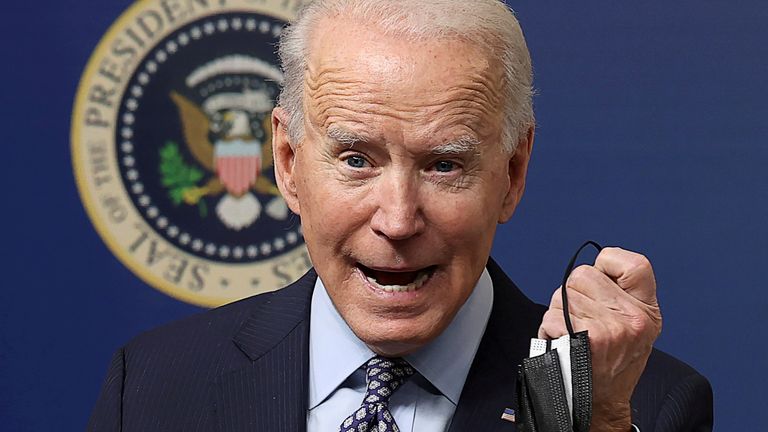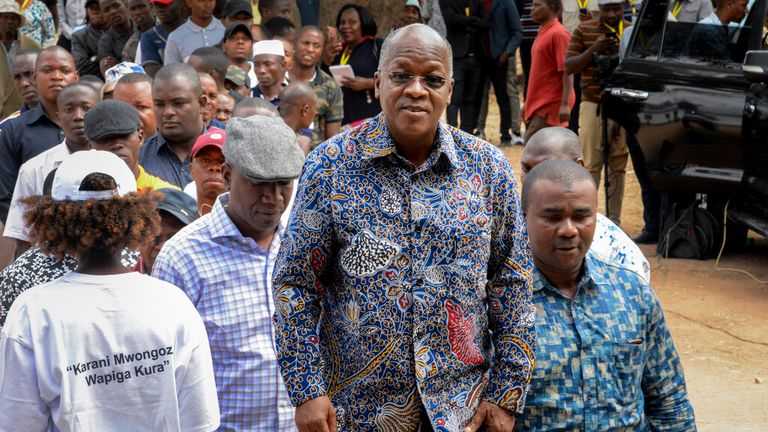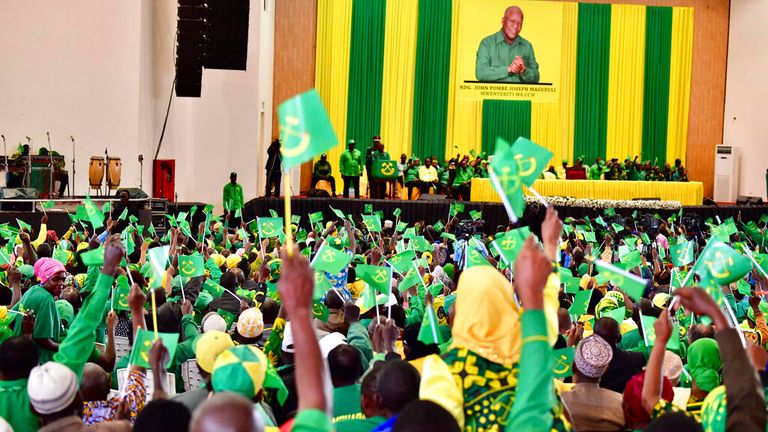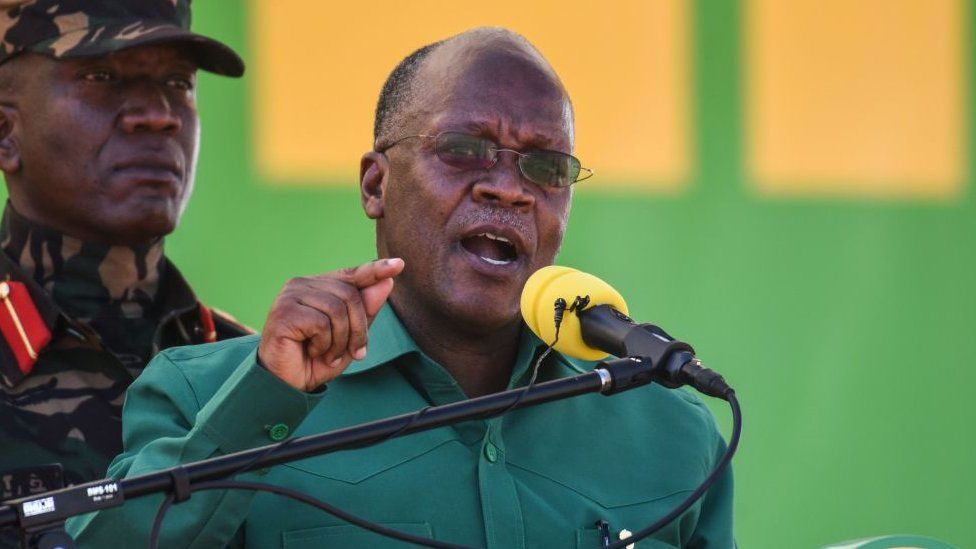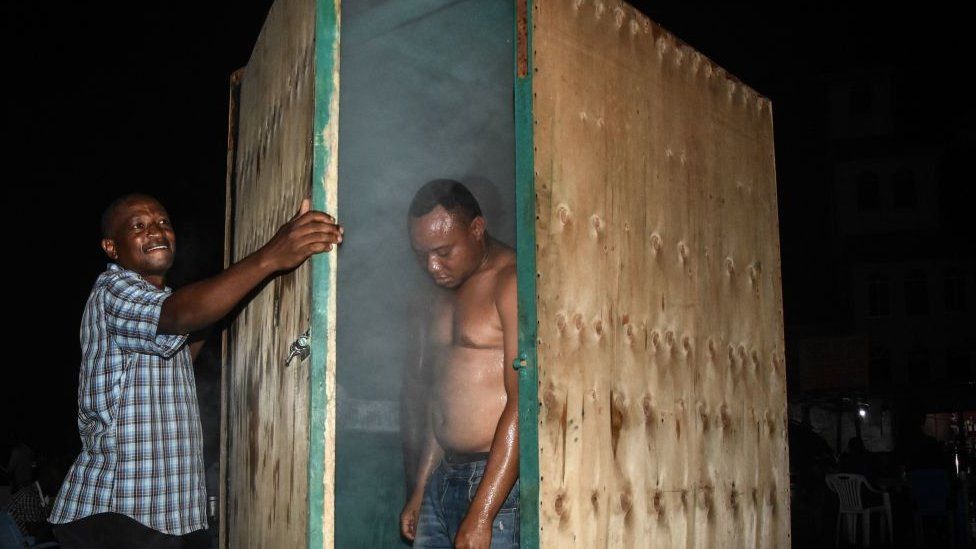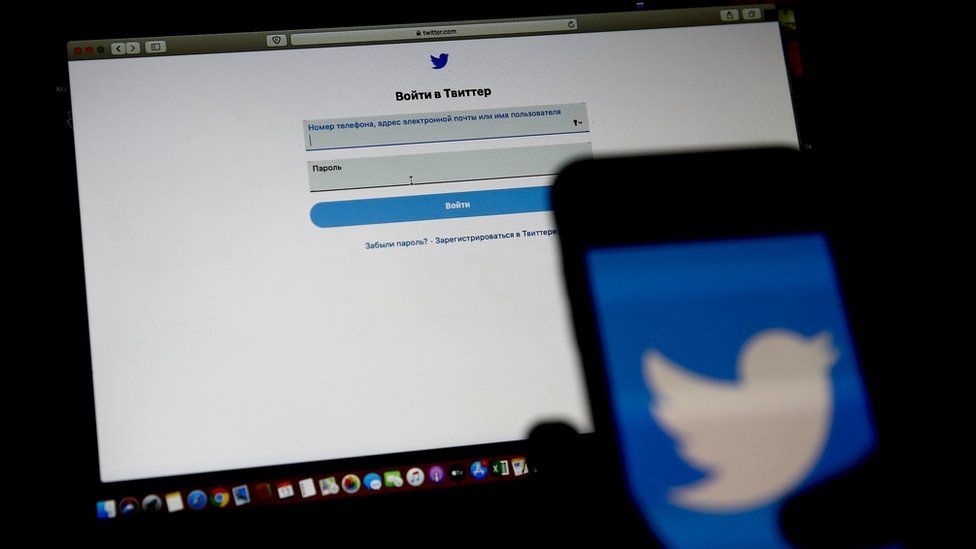The US Congress has approved a $1.9trn (£1.3trn) COVID-19 relief bill.
The House of Representatives gave final congressional approval to the sweeping package by 220-211 votes, seven weeks after Joe Biden entered the White House and four days after the Senate passed the bill without a single Republican vote.
Republican politicians opposed the package as bloated, crammed with liberal policies and not taking heed of signs the pandemic crisis is easing.
Most noticeable to many Americans is the provision to provide up to $1,400 (£1,000) in direct payments this year to the majority of adults and extend $300 (£216) per week emergency unemployment benefits into early September.
The House Speaker Nancy Pelosi hailed the COVID relief bill as "historic" and "transformative".
That may sound like predictable partisan hyperbole, but the $1.9trn plan is indisputably a serious achievement at a critical time for millions of Americans.
It also represents President Biden's most significant early legislative achievement.
It's a lot of money for a lot of people and will dramatically change the lives of many low-income families over the next year.
Here's a breakdown of the benefits: 85% of households will get $1,400 in stimulus cheques - due to hit their bank accounts by the end of this month.
The legislation offers the full $1,400 payments to those with adjusted gross income of up to $75,000 for individuals, and $150,000 for married couples who file a joint tax return.
The unemployed will get an additional $300 per week and families with children under 17 will receive $3,000 per child.
On top of that, people will get increased rental assistance, food aid and insurance subsidies.
The bill also extends the emergency jobless benefits to early September.
There's a huge amount set aside for vaccines, testing and treatments too, as well as extra funding for state and local governments, schools and businesses.
Lower and middle-income families will also receive tax breaks.
Several Democrat leaders have compared it with the passage of the Affordable Care Act under Barack Obama, claiming it will not only "crush" the virus and the economic fallout but will also help alleviate some of the heavy gender and racial inequalities in the economy.
It includes a lot of the progressive policies they've been trying to push through for some time - like a refundable child tax credit.
Whether those survive beyond the pandemic will depends on future political negotiations, but Democrats have so far defied some of their own expectations with this.
Politically, the bill demonstrates what Washington is willing and able to do in a crisis. But it wasn't without setbacks. The Senate removed the plan for a gradual minimum wage increase to $15 an hour by 2025.
Subscribe to the Daily podcast on Apple Podcasts, Google Podcasts, Spotify, Spreaker
The minimum wage has remained bitterly stagnant for a very long time in America.
But the popularity of the other aspects of the relief bill ensured it passed.
More than two-thirds, or 68%, of Americans support the package, according to a Quinnipiac University survey.
Mr Biden though is being careful not to take too much credit - deciding unlike his predecessor not to include his signature on the stimulus cheques.
https://news.google.com/__i/rss/rd/articles/CBMic2h0dHBzOi8vbmV3cy5za3kuY29tL3N0b3J5L2NvdmlkLTE5LXVzLWNvbmdyZXNzLXBhc3Nlcy1oaXN0b3JpYy1hbmQtdHJhbnNmb3JtYXRpdmUtY29yb25hdmlydXMtcmVsaWVmLWJpbGwtMTIyNDIxNTbSAXdodHRwczovL25ld3Muc2t5LmNvbS9zdG9yeS9hbXAvY292aWQtMTktdXMtY29uZ3Jlc3MtcGFzc2VzLWhpc3RvcmljLWFuZC10cmFuc2Zvcm1hdGl2ZS1jb3JvbmF2aXJ1cy1yZWxpZWYtYmlsbC0xMjI0MjE1Ng?oc=5
2021-03-10 21:33:45Z
CBMic2h0dHBzOi8vbmV3cy5za3kuY29tL3N0b3J5L2NvdmlkLTE5LXVzLWNvbmdyZXNzLXBhc3Nlcy1oaXN0b3JpYy1hbmQtdHJhbnNmb3JtYXRpdmUtY29yb25hdmlydXMtcmVsaWVmLWJpbGwtMTIyNDIxNTbSAXdodHRwczovL25ld3Muc2t5LmNvbS9zdG9yeS9hbXAvY292aWQtMTktdXMtY29uZ3Jlc3MtcGFzc2VzLWhpc3RvcmljLWFuZC10cmFuc2Zvcm1hdGl2ZS1jb3JvbmF2aXJ1cy1yZWxpZWYtYmlsbC0xMjI0MjE1Ng
